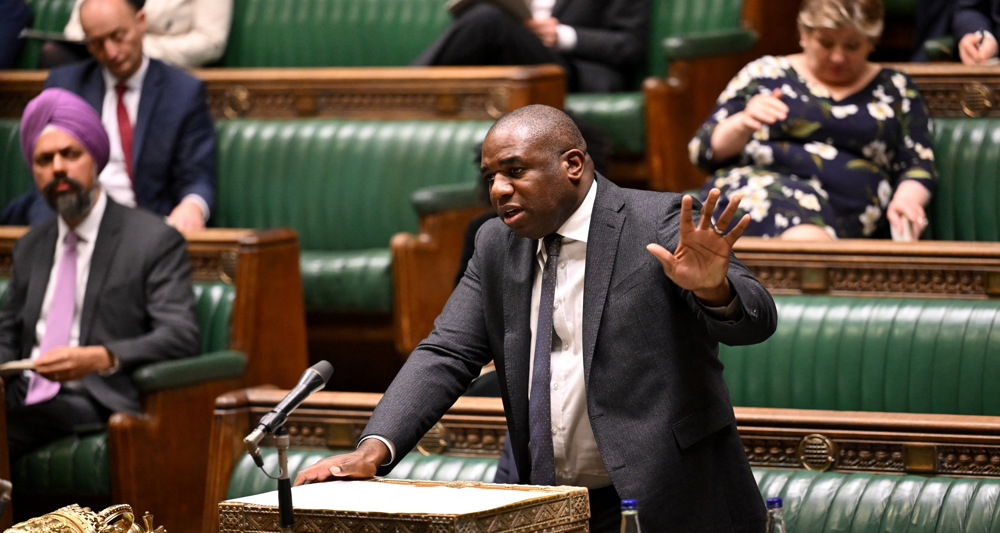Media: Boris Johnson offers thwarting Brexit concessions
The Brexit accord, struck between the UK premiere and EU officials, has drawn widely mixed reactions, with many saying Boris Johnson succumbed to pressure and granted Brussels the greatest and most humiliating concessions.
European leaders on Thursday welcomed the announcement of a Brexit deal, but the fight to get it past the respective EU and UK parliaments still remains a challenge.
Under the agreement, Brexit will not result in highly controversial border checks in Ireland as Northern Ireland would be aligned to the EU's, as well as the UK's, customs rules and single market.
Hardline unionists in the UK would see this as a big problem, which leaves Mr. Johnson with the possibility of a failed deal after going through a vote in the House of Commons on Saturday.
“But the British prime minister knows it, and for him the most important thing is not that parliament approves the deal. What really matters to Johnson is to be able to present something concrete to parliament – and, above all, to future voters,” France’s Libération said.
Germany’s Die Welt also noted that the big winner was the UK Prime Minister – even if he loses Saturday’s vote. “At first glance, the outlook for Johnson is not good,” Die Welt said. “He lacks votes on both sides of the house. But if MPs are faced with a choice between Johnson’s deal and no deal, they may well vote for an orderly exit.”
It went on to explain that if the House rejects his deal, the EU would allow an extension, which would give him enough time to organize an election. Then, Boris Johnson can say that he had made a deal and the opposition can only offer unknowns.
The Irish Times said that the concessions on the EU side had been “less substantial than those made by London”. The backstop was gone, the paper said, “but the price Johnson has paid is his acceptance of the very thing – Northern Ireland in the EU customs union – that the backstop would, if activated, have produced.”
It also pointed out that, just a year ago, Mr. Johnson said that no British prime minister could ever accept a customs and regulatory border in the Irish Sea. But his deal has just done so.
Meanwhile, there are also those within UK politics that have already rejected the deal out of hand, including the Democratic Unionist Party (DUP), before reading the legal framework of the deal.
“Although the DUP instantly rejected the deal on Thursday morning, Johnson says he is still confident of a parliamentary majority. He is betting that MPs scared of a no deal will prefer certainty to uncertainty,” the Netherlands’ De Volkskrant argued. “Johnson may hope that he is heading towards his finest hour. But the bookies reckon he’s going to end up seven votes short.”
Meanwhile, Spain’s El Pais noted that the EU had already offered Britain almost the same terms as this deal, but the UK had rejected the offer. Now, however, the UK has accepted.
The deal was the “least bad exit for the immediate future,” El Pais said, adding that although the EU gave away nothing in the deal, it will be “the EU citizens who reside on that unfortunate island” who will suffer.
On Saturday, Mr. Johnson is likely to need the support of some Labour MPs, not to mention the 21 Conservatives he expelled from the parliamentary party for backing the Benn Act last month.
The message has been sent loud and clear by EU leaders that they won’t budge further. And Boris Johnson has gotten what he wanted as a matter of personal achievement, regardless of the economic and social problems that are expected to follow after the UK breaks away from the European Union.
Israeli strikes on north Gaza hospital ‘extremely dangerous, terrifying’: Director
VIDEO | Yemen targets Tel Aviv with Palestine 2 missiles
Pezeshkian: Iran resolved to complete North-South Transport Corridor
VIDEO | Iran-Syria: For Resistance
Qassam Brigades claims killing 3 Israeli troops in northern Gaza
More alive than ever: Sayyed Hassan Nasrallah's legacy grows stronger in martyrdom
Occupation of Syria’s highest peak Mount Hermon part of ‘Greater Israel’ project
Iran: Syrian people will decide their future without foreign interference










 This makes it easy to access the Press TV website
This makes it easy to access the Press TV website